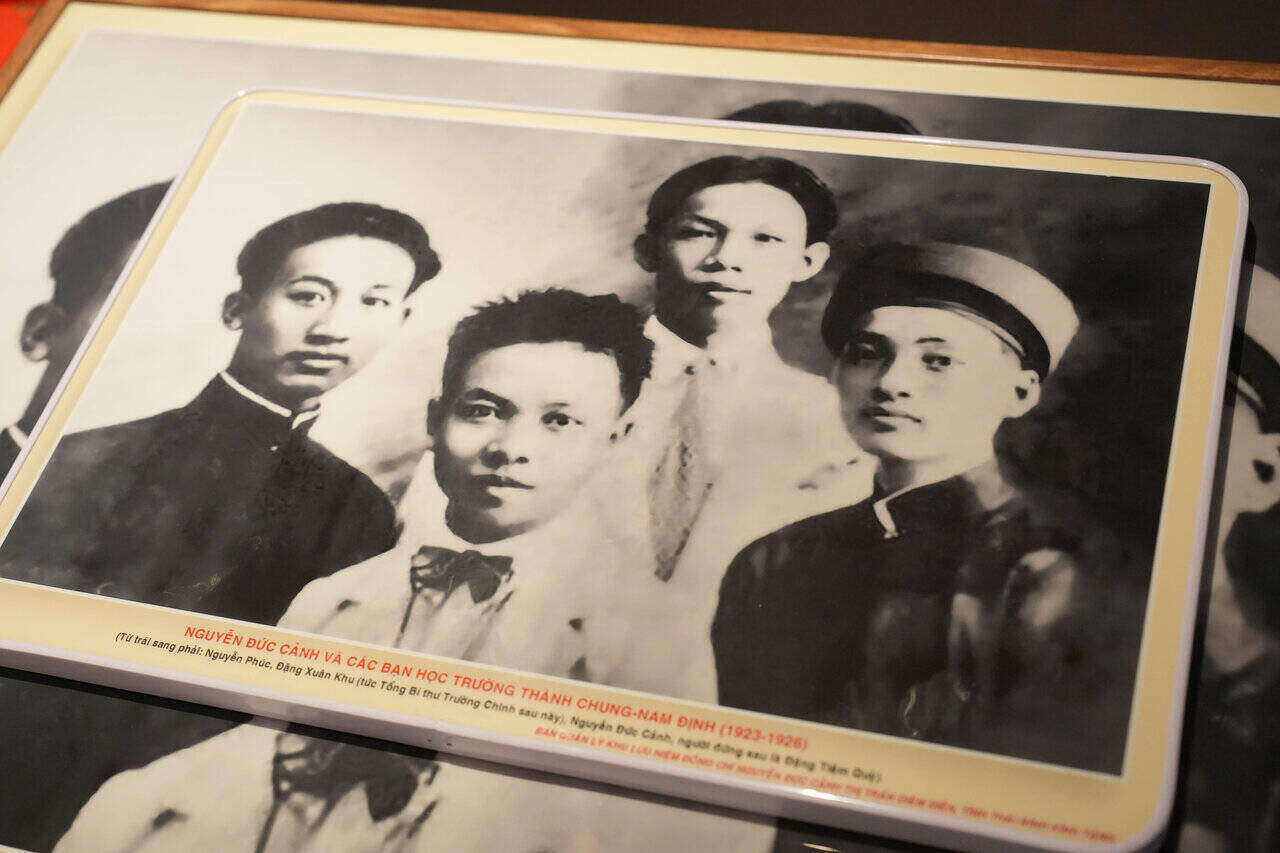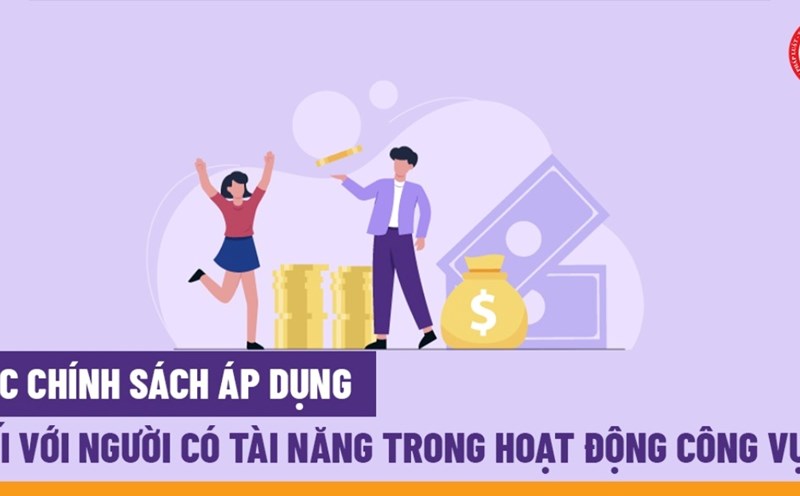Dedicate all your youth to the independence and freedom of the nation
Born on February 2, 1908, in Diem Dien village, General Ho Doi, Thai Thuy district, Thai Binh province, Nguyen Duc Canh was one of the first leaders of the Party, a shining example in the Vietnamese workers and labor movement, a true communist who devoted his entire youth to fighting and sacrificing for the independence and freedom of the nation.
After finishing primary school in Thai Binh town, Nguyen Duc Canh went to Thanh Chung School, Nam Dinh. Here, he had the opportunity to understand the social situation at the time and sympathize and be close to those who were oppressed by injustice. Nguyen Duc Canh became friends with patriotic young people such as Nguyen Danh Doi, Dang Xuan Khu (Truong Chinh), Nguyen Van Nang, Dang Xuan Thieu.
In 1925, due to participating in the movement to release Phan Boi Chau, he was expelled from school while studying for a common degree. During this time, Nguyen Duc Canh had 2 years before entering the arduous revolutionary path and that was also the time he experienced things such as working as Hung Ky photo artist, teaching at Cong Ich Tu Bach Mai School, and arranging letters for Mac Dinh Tu printing house.
In 1927, when he was a book distributor at Le Van Tan printing house, Nguyen Duc Canh came to and joined the group "Nam Dong thu xa", which later developed into the Vietnam National Party organization. In September 1927, he and Li Hong Yason went to Guangzhou (China), met with the General Confederation of Youth to carry out the tasks assigned by the National Assembly. In Quang Chau, Nguyen Duc Canh and Ly Hong Nhat could not meet comrade Nguyen Ai Quoc but still attended the political class of the Vietnam Youth Revolutionary Youth Union trained by Ho Tung Mau.
Through studying, both of them resolutely dismissed the Party's National Assembly organization, voluntarily joined the Vietnam Youth Revolutionary Association, and changed from the Party's National Assembly stance to the Communist stance. This was a decisive turning point in Nguyen Duc Canh's revolutionary activities.
On July 28, 1929, implementing the Resolution of the Provisional Central Executive Committee on transport work, Nguyen Duc Canh trieumed the Congress of Workers of Bac Ky provinces at 15 Hang Non (Hanoi). The Congress set out new tasks for the workers' movement and established the Bac Bac Bac Red General Confederation of Labor, appointing comrade Nguyen Duc Canh as interim Head.
An excellent revolutionary leader, a great journalist
Clearly recognizing the importance of journalism in revolutionary movements, Nguyen Duc Canh soon used journalism as a sharp combat weapon, actively directing the promotion of propaganda and mobilizing workers to unite in the class struggle. He actively contributed to the founding of the Communist Party of Vietnam; and was the founder and first Editor-in-Chief of Lao Dong Newspaper.

In the difficult and deprived situation, having to deal with the lurking of detectives, Lao Dong Newspaper - the mouthpiece of the Do Bac Ky General Confederation of Labor was urgently prepared and in time to issue the first issue. With the help of a Party organization, the first Lao Dong issue, launched on August 14, 1929, was printed in clay, on Dap Cau paper with a rattan face and a flat side.
Among these newspapers, Lao Dong published a call for workers and laborers of factories, mines, and plantations to participate in organizing the Congress, unite to fight against the capitalists and imperialists. The newspaper's thunder and lightning under the Lao Dong character is the line: "Infertility and oppressed peoples around the world unite". On the first page, there is also an article about the First Congress of the Red River Trade Union. The article is rudimentary but the lyrics are full of excitement, clearly showing the image of "Mr. B" - comrade Nguyen Duc Canh chairing the congress.
Not only was he the founder, when in charge of Lao Dong Newspaper, Nguyen Duc Canh also directly wrote many articles denouncing the crimes of socialism, calling on the masses to fight. Labor Newspaper No. 4 (born on November 1, 1929) published an in-depth analysis of the current situation: "Currently, the socialist empire is trying to exploit classlessness and exploit poor poor poor people, they are changing to guns, increasing the army, about to arrest thousands of thousands of brothers to die for it on the battlefield to enrich a group of capitalists...".
Through this article, he also pointed out to the masses that only "the Communist Party can sacrifice all its efforts first to guide the classless people and poor poor poor poor poor and all those who labor hard to make a way to overthrow the socialist empire in Indochina". It is the voices of the press, the propaganda and mobilization of the " desertified" soldiers that contribute to the flare-up of the fighting fire of the working classes in the provinces of Hanoi, Hung Yen, Hai Duong, Hai Phong, Quang Yen, Hon Gai, Cam Pha, Thai Binh, Nam Dinh.
Permanent Vice President of the Vietnam Journalists Association Nguyen Duc Loi commented that Nguyen Duc Canh came to the press early and used the press as an effective revolutionary tool. The press helped him participate in mass mobilization, propagate revolutionary guidelines... Practical activities have created his name, an excellent revolutionary leader, a great journalist of the Vietnamese Revolutionary Press.
With the contributions of journalist Nguyen Duc Canh to the Vietnam Revolutionary Press, to the work of propagating and mobilizing the revolution in all classes of people, fighting against colonialism and counter-revolutionary forces as well as the great values of the press legacy he left behind, Vice President of the Vietnam General Confederation of Labor Ngo Duy Hieu pointed out 5 lessons from revolutionary and great journalist Nguyen Duc Canh to today's generation.
The first is a lesson in innovating thinking and expanding vision, attaching importance to journalism in the revolutionary cause.
Second is the spirit of commitment to a big career.
Third, constantly innovating, most especially in the context of digital transformation and green transformation.
Fourth, attach importance to communication work, especially journalism for workers.
Fifth, continue to pay attention to building a team and leaders, especially leaders in journalism.
Mr. Ngo Duy Hieu acknowledged that in difficult circumstances, the revolution was submerged in blood, the idea of comrade Nguyen Duc Canh was to make journalism an important channel to bring information to the people, especially workers and laborers. Looking back, although his time as a journalist was short, he left a huge legacy, worthy of being an example for today's journalists.
According to Journalist Tran Thi Kim Hoa (Vietnam Press Museum), in the historical spaces of the press profession from 1925-1945 displayed at the museum, there is a highlight of the content about press weapons, especially in the class struggle of our revolutionary leaders - journalists. One of them is journalist Nguyen Duc Canh - leader of the Bac Ky Red Cross Society, first Secretary of the Hai Phong City Party Committee, who directly wrote articles, was in charge of the Society's newspapers and magazines and was the first Editor-in-Chief of Lao Dong Newspaper and the Red Cross Society Magazine when he was only 21 years old.
His presence in the Vietnam Press Exhibition Area 1925-1945 continues to shine as a personality, a talent - an example of spirituality that has lived, fought and sacrificed for the people, for the country, including the career of Vietnamese Revolutionary Press - journalist Tran Thi Kim Hoa said.











